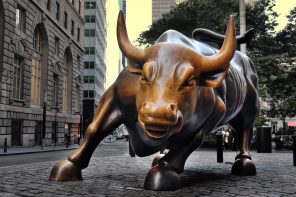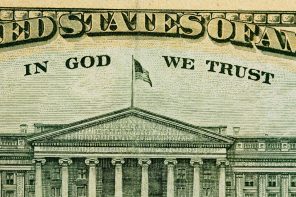A new survey on the intersections of religion, values, and attitudes toward capitalism, government, and economic policy was released on Thursday by the Public Religion Research Institute and the Brookings Institution. There’s a lot of interesting data and analysis to wade through, including an effort to better identify and understand religious progressives.
I was most struck by this piece of data: 50 percent of white evangelicals say they believe capitalism and the free market are at odds with Christian values. According to the survey, white evangelicals are more likely to say the free market and Christian values are at odds than black Protestants, mainline Protestants, Catholics, and religiously unaffiliated Americans. On first glance that seems difficult to accept given white evangelicals’ overwhelming electoral support for the Republican Party.
But that finding is buttressed by another one: that only 44 percent of white evangelicals are economic conservatives in this survey’s analysis, while nearly two-thirds are social conservatives. That helps explain why some progressive economic policies like boosting the minimum wage draw high and cross-cutting support. Religious conservatives are far more likely than religious progressives to say religion is the most important thing in their lives. This is an answer to the “what’s the matter with Kansas?” question. Many evangelicals and religious conservatives don’t agree with right-wing economic policies, but those concerns are trumped by social issues which they are more likely to see in religious terms.
Columnist E.J. Dionne, co-author of a report on the survey, noted that this finding demonstrates the bind facing Republicans who want to broaden the party’s electoral coalition. De-emphasizing social issues and pushing conservative economic policies would bring with it some danger to Republicans’ electoral coalition. As one questioner noted, that puts Dionne in rare agreement with conservative religious leaders like Tony Perkins who are always warning GOP leaders not to abandon social conservatives.
There’s a lot of grist for future analysis, including interesting breakdowns on people’s response to the assertion, “It is necessary to believe in God in order to be moral and have good values.” Survey author Robert Jones has posted about the survey’s findings on religion and the millennial generation for the Washington Post’s On Faith blog. Audio for the full two-hour briefing and panel discussion on the survey that was held at Brookings on Thursday afternoon is here.
(Full disclosure: before becoming an RD associate editor, I did some work for PRRI as a consultant.)




